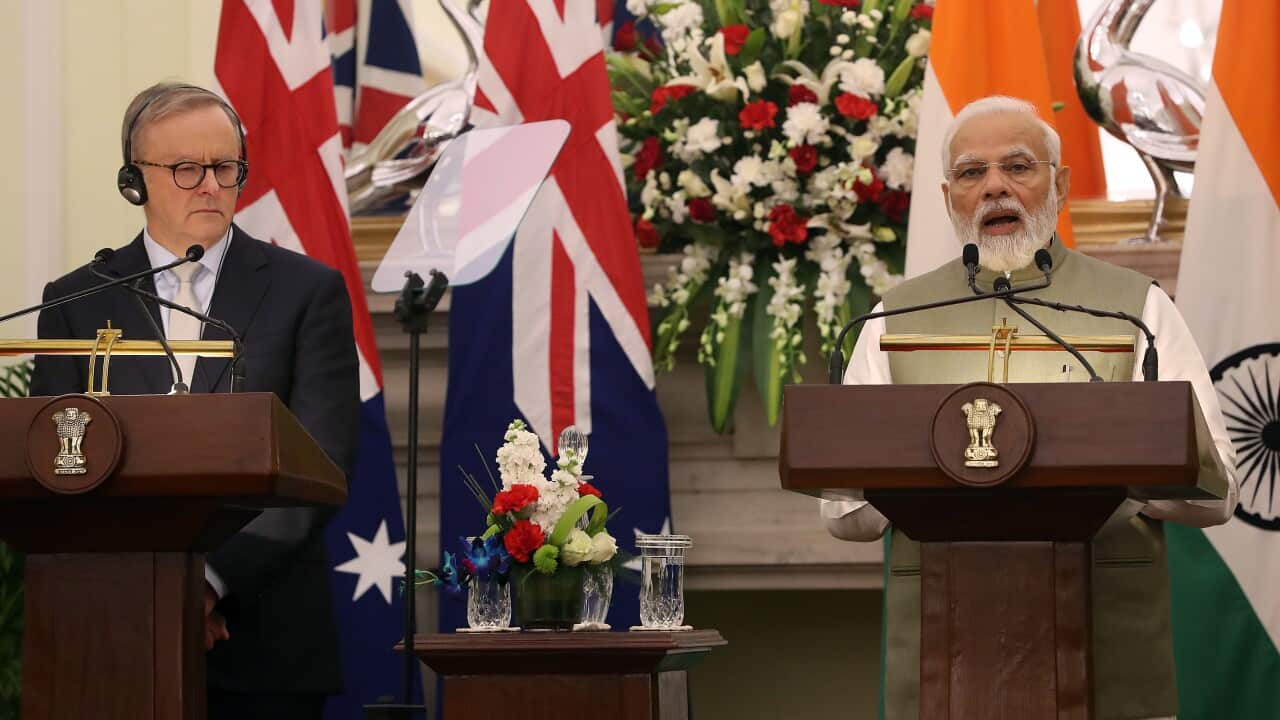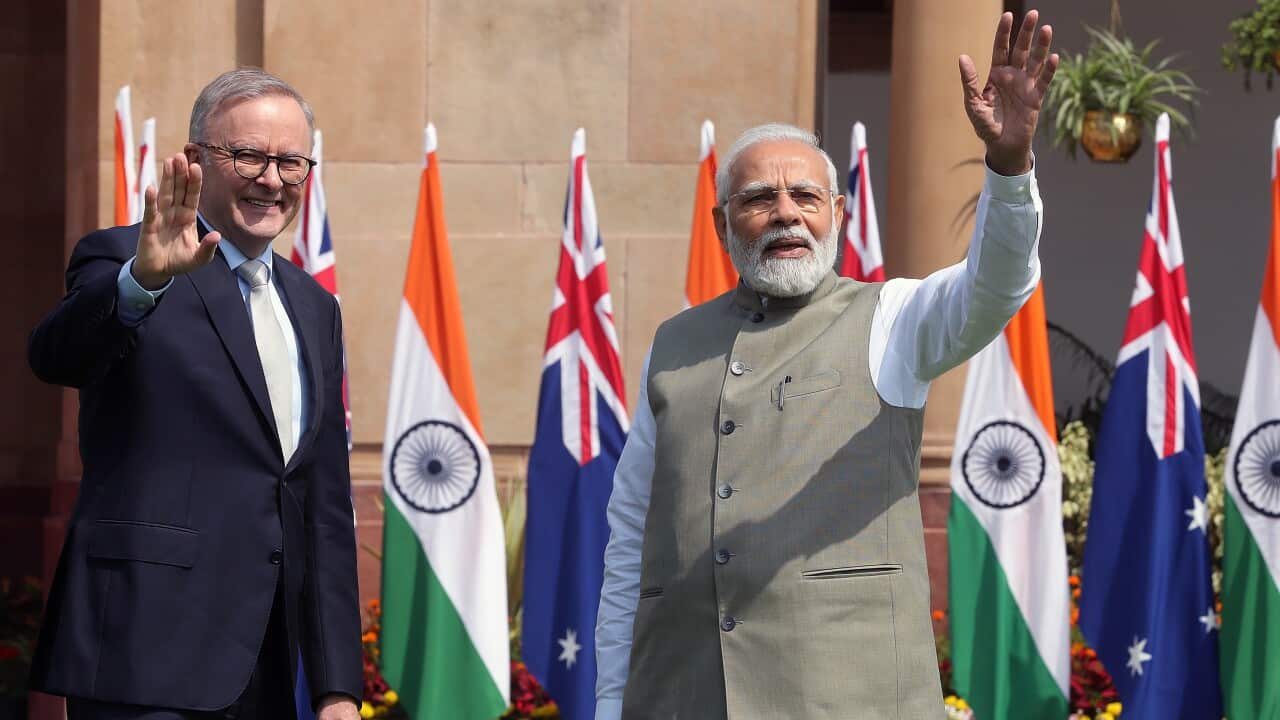Key Points
- Attacks on Hindu temples have been raised in high-level meetings between the Indian and Australian PMs.
- A new film deal has also been signed, to provide funding to projects in Australia and India.
- The deal was among a number signed during Anthony Albanese's visit to India.
Prime Minister Anthony Albanese said police and security agencies would ensure those responsible for vandalism targeted at Hindu temples in Melbourne would face the "full force of the law", after the issue was raised by his Indian counterpart, Narendra Modi.
There have been at least three incidents of vandalism of the temples in Victoria, with slogans in support of pro-Khalistan Sikh separatist movement sprayed .
Mr Albanese said he told Mr Modi that Australia was a country that respected people's faith.
"We don't tolerate the sort of extreme actions and attacks that we've seen on religious buildings, be they Hindu temples, mosques, synagogues, or churches," he said.
"This has no place in Australia. And we will take every action through our police and also our security agencies to make sure that anyone responsible for this faces the full force of the law. We're a tolerant multicultural nation, and there is no place in Australia for this activity."
The temple vandalism incidents received renewed media coverage this week with stories on the front pages of Indian newspapers.
Earlier at a joint media conference, Mr Modi said it had been "distressing" to see the incidents occurring.
"It is a matter of regret that attacks on temples have been regularly reported in Australia over the past few weeks," he said.
"It’s natural that such news worries the people in India, and disturbs our mind.
"I conveyed these feelings and concerns to Prime Minister Albanese and he has assured me that the safety of the Indian community is of special priority for him. Our teams will be in regular contact on this matter, and will cooperate as much as possible."
Bollywood dreams
Meanwhile, Australia and India will collaborate on an audiovisual co-production deal designed to "bring a slice of Bollywood to Brisbane" following the prime minister's whirlwind tour of the Asian economic powerhouse.
The leaders finalised the deal on Friday, encouraging collaboration and creative exchange to ensure more co- produced films between the nations.
Projects in both countries will get access to government funding including grants and tax offsets.
Arts Minister Tony Burke said the Australian screen industry would benefit greatly from the co-production deal, including through greater access for local filmmakers to the international scene.
"India is a global powerhouse when it comes to film ... bringing a slice of Bollywood to Brisbane, while showcasing Melbourne to Mumbai is good news for the Australian screen industry," he said.
Deals on critical minerals, trade and defence
It was one of a number of major announcements made following meetings between the two leaders, including on trade and defence.
In a joint address with Mr Modi at the end of the tour, Mr Albanese revealed the nations agreed on an early conclusion to their Comprehensive Economic Co-operation Agreement, adding he was hopeful the deal would be wrapped up by the end of the year.
A limited free-trade agreement between the countries came into effect in January but has already borne fruit, with more than $2.5 billion worth of Australian produce hitting India.
The pair also announced an Australia-India solar taskforce co-chaired by Australian professor Renate Egan, one tangible outcome from discussions on the need to address climate change.
The nations are also set to work more closely on supplying critical minerals as India seeks to meet ambitious goals of 50 per cent renewable energy and 30 per cent electric vehicle usage by 2030.











